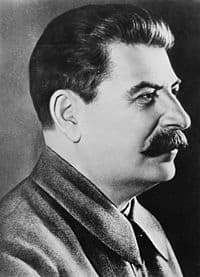

Father Michał Rapacz – the new Polish Blessed, martyr of communism
Author: Anna Drus
On 15 June, a new person was added to the list of Polish blessed and saints – Father Michał Rapacz, who was murdered by a communist militia in 1946. His story reflects the social problems and atmosphere in Poland at the end of the war.
The ceremony of the new Blessed’s elevation to the altars took place in the Shrine of the Divine Mercy in Kraków-Łagiewniki and the beatification Mass was presided over by Cardinal Marcello Semeraro, Prefect of the Dicastery for Canonizations. In a letter to those attending the ceremony, the President of Poland, Andrzej Duda, noted that Father Michał Rapacz 'was an ordinary pastor, but the times in which he lived required an extraordinary strength of spirit.’ He noted that the immense poverty in a country devastated by the Second World War and the spread of communist terror meant that 'honesty, decency and humanity demanded heroism and exposed them to aggression and death.’ He underlined his gratitude to the Pope for 'another blessed hero of the communist era’ and expressed the hope that the beatification of Father Michał Rapacz would contribute to 'healing the wounds that sometimes still divide people who remember that dark era.’
The story of Father Michał Rapacz focuses, as if through a lens, on the social problems and atmosphere that prevailed in Poland immediately after the end of the war. On the one hand, post-war poverty forced people to fight for survival, sometimes at any cost; on the other hand, collective trauma after years of familiarity with death led to an increase in violent and fearful behaviour; and on the third hand, a new regime with a new ideology sought people to create a 'new Poland’ together with a 'brother’ from the East.
Father Michał was an ordinary diocesan priest who, like almost all the others, came from a devout peasant family and was sent to work in Płoki in the Chrzanów area, which was a difficult area for the Church. There, even before the war, a weakness for the virulently anti-Christian and anti-religious communist ideology had begun to spread among the local population, and it was from there that a large part of the post-war recruits for the communist repressive organs came: Civil Militia and Security Service.
In his work, Father Michał never fought against communism, but he did fight against religious indifference and for the souls of his parishioners. In his fiery sermons, he tried to turn people towards God, His laws and His mercy in the post-war reality.
Father Rapacz’s involvement in such a pastoral ministry did not sit well with local communist activists. The priest began to receive threats, including a direct threat of his life for influencing the faith of his parishioners too much.
The priest’s only response to this situation was to intensify his personal prayer: he would lie prostrate in the chapel for hours, preparing himself, as he put it, to accept God’s will.
His drama unfolded during the night of 11 to 12 May 1946. His parsonage, which he shared with his sister, who was his housekeeper, was invaded by several armed militiamen who, after reading him the indictment issued by the local Communist Party executive committee, took him into the forest. He was first dragged by a rope, then beaten and finally murdered with a shot to the head. The sister and other witnesses to the abduction were locked up in the parsonage and threatened with death. As he was being led away, the priest is said to have repeated, 'Your will be done, Lord.’
Although there was no shortage of witnesses, a conspiracy of silence surrounded the case. The investigation into the death was closed, the body was buried in secret and the testimony of the priest from Płoki was secretly passed on. A silent cult of the priest, who survived the years of Stalin’s greatest terror, also began to emerge.
In the 1970s, the Auxiliary Bishop of Kraków, Julian Groblicki, began to collect and document both the cult and the testimonies of Father Rapacz’s life and death. However, it was not until the fall of communism in Poland in 1992 that the green light was given for the official beatification process to begin.
For more than 30 years, the Vatican mills grinded away at the documents. Finally, Pope Francis issued an official decree confirming the priest’s martyrdom for the faith, which allowed the official beatification to be announced. When a person’s death is recognised as martyrdom, it doesn’t require the recognition of a miracle through the intercession of the candidate for the altars.
In the Polish liturgical calendar, the new Blessed will be commemorated on 12 May – the day of his death or, as the Church teaches, his birth into heaven.

Source: DlaPolonii.pl
Photo:DlaPolonii.pl:Forum-0881893191





